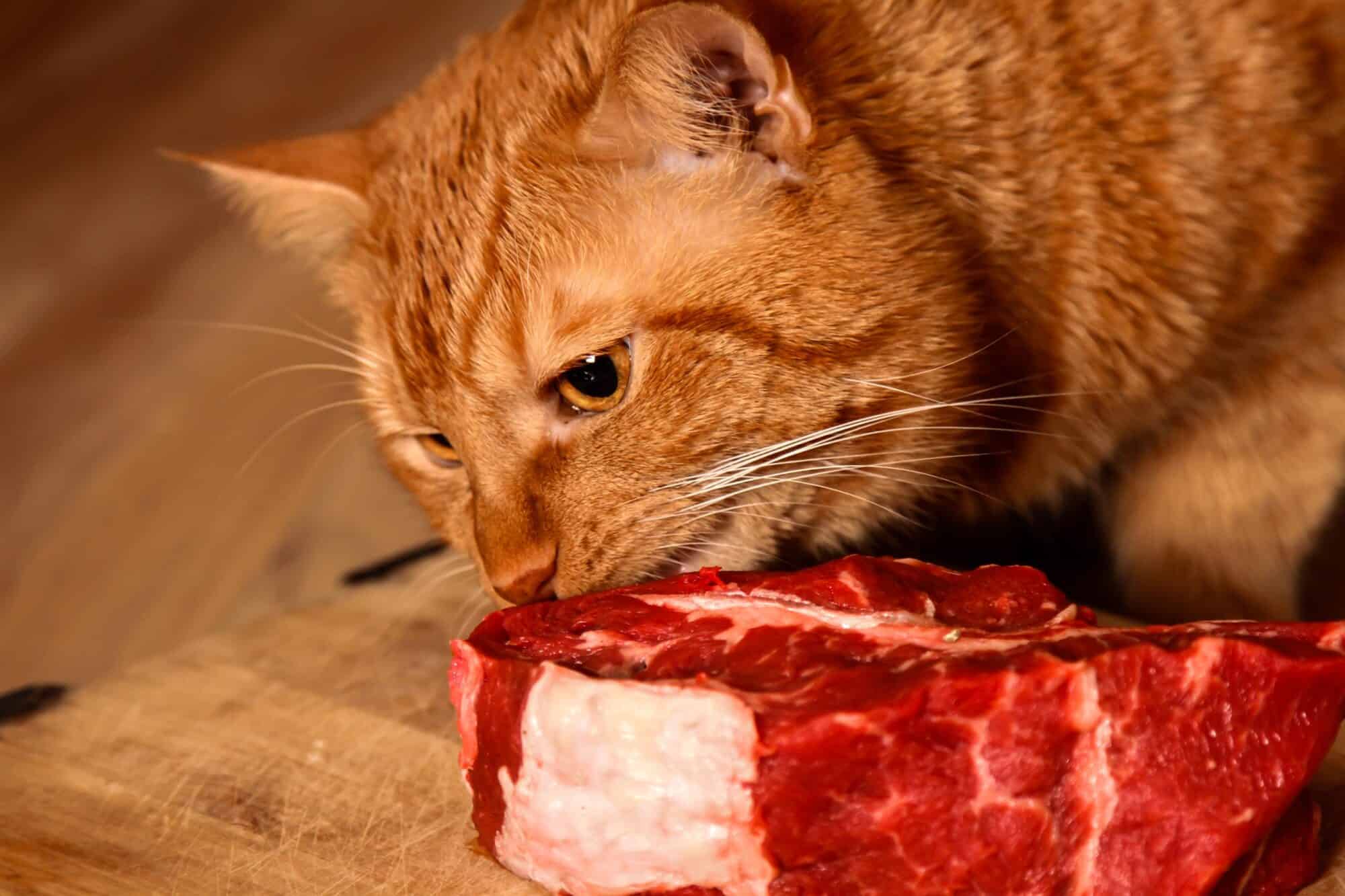Why Cats Need High-Protein Diets

Cats are fundamentally different from dogs (and humans!) in one big way: they’re obligate carnivores. This means their bodies need animal-based protein in order to function. Unlike omnivores, cats only need nutrients found in meat.
They don’t need fruits. They don’t need vegetables.
All they need is meat.
Today, the team at Bowman Veterinary Hospital will explore exactly how a high-protein diet benefits our feline friends.
The Role of Essential Amino Acids
One of the main reasons cats need high-protein diets is because of essential amino acids. These are the building blocks of protein that the body cannot produce on its own. They have to be obtained through food.
While humans and dogs can synthesize some amino acids or get them from a variety of foods, cats rely heavily on animal proteins to get what they need.
With a high-protein cat diet, our feline family members get amino acids, including arginine, methionine, and lysine. These amino acids play a crucial role in a cat’s metabolism, immune function, and tissue repair processes.
If kitties don’t get enough of these amino acids, they fall prey to a cocktail of health issues. These can include muscle wasting, immune system deficiencies, seizures, and even death.
Another incredibly important amino acid for cats is taurine.
Why Taurine Is Critical to a Cat’s Health
Taurine is one of the most important amino acids for cats. So much so that it deserves its own section! Cats can’t make enough taurine on their own, and it’s found almost exclusively in animal tissues. When they eat a high-protein diet, cats get the taurine they need to function.
If they don’t get enough taurine, the consequences are grave. Taurine deficiency can lead to severe health problems, including:
- Dilated cardiomyopathy (an enlarged heart)
- Vision loss
- Reproductive failure
Commercial cat foods are typically supplemented with taurine to make sure cats get enough of the crucial protein.
But not all protein sources are equal. Feeding cats a diet too low in animal protein—or relying on plant-based ingredients—can result in dangerously low taurine levels.
What This All Means for Your Cat’s Diet
Since cats are carnivores, their digestive systems are fine-tuned to handle a meat-based diet. This means they don’t need, or even benefit from, plant-based foods.
Feeding cats a high-protein food—ideally one with whole meats like chicken, turkey, or beef—ensures they get all the essential amino acids they need. Including the ever-important taurine.
Always check the ingredient list on your kitty’s food. If you’re unsure about the protein content or quality, ask your veterinarian for advice.
Worried your kitty isn’t getting enough of the essential amino acids? The caring team at Bowman Veterinary Hospital can help. Call us at (530) 823-6306 to schedule an appointment!


